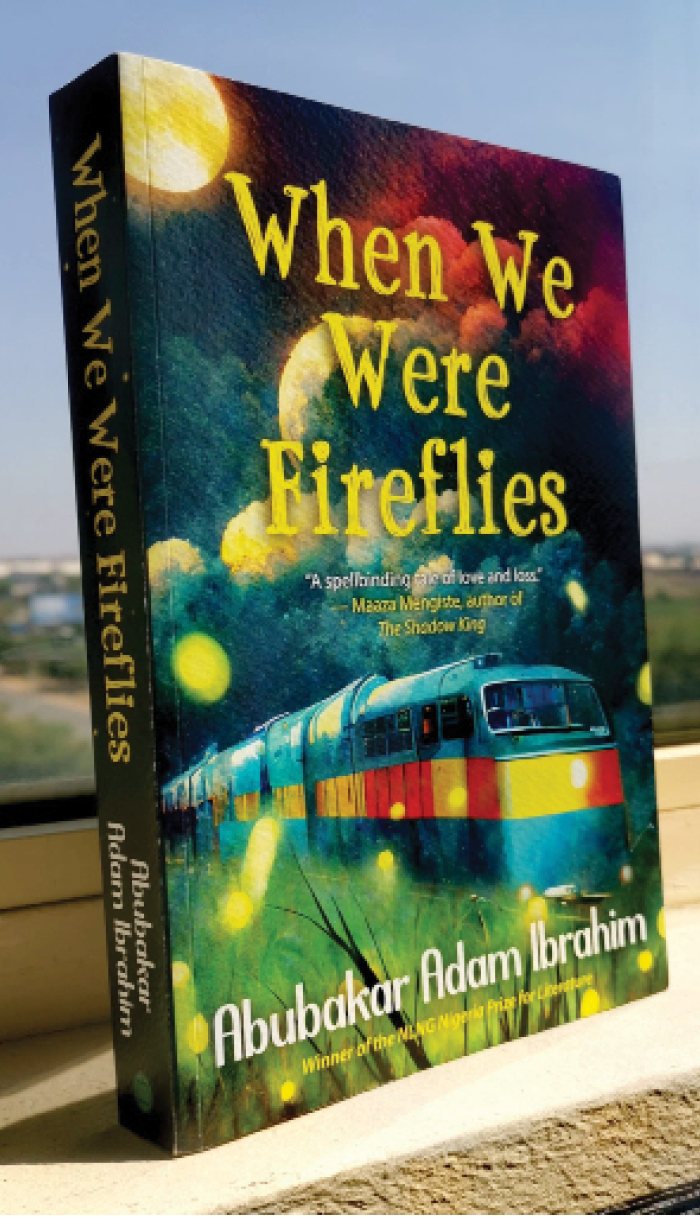The Tragic Hero Mustn’t Die: When We Were Fireflies
Abubakar Adam Ibrahim is redefining tragedy in a postmodern milieu. Tragedy is a genre that explores great human suffering in which the hero struggles against strong external and internal challenges and eventually succumbs to a heart-breaking ending in death, destruction or chaos due to a tiny flaw in his character. In the Aristotelian scheme, the […]

When We Were Fireflies
Abubakar Adam Ibrahim is redefining tragedy in a postmodern milieu. Tragedy is a genre that explores great human suffering in which the hero struggles against strong external and internal challenges and eventually succumbs to a heart-breaking ending in death, destruction or chaos due to a tiny flaw in his character. In the Aristotelian scheme, the sole aim of tragedy is to create catharsis ─ a purging of powerful emotions. Two kinds of catharsis usually occur following a tragic fall; pity and hopelessness. Witnessing the tragic hero take responsibility and retain his goodness throughout his travail evokes pity. However, seeing him suffer the worse and lose everything causes hopelessness.
Abubakar Adam Ibrahim is recasting tragedy in a way that leaves us with hope in place of despair. Appropriating Postmodern tropes of metafiction, unreliable narration and self-reflexivity, Abubakar creates a tragic hero, in a tragic setting such as Nigeria, who defies external powers and internal flaws.
‘When We Were Fireflies’, Abubakar’s fourth work of fiction and second novel, tells the story of a troubled man living a third life, and a third death looming. Yerima Lalo had been murdered twice. The first time by a jealous rival on a moving train and the second time by a jealous brother on a farm. With a third impending death hovering and Yerima falling in love again, love appears to be his tragic flaw.
Covering 409 pages, the narrative takes us, in a spatiotemporal movement, through the different lives of Yerima Lalo. The first as Babayo, a young teacher in love with the vivacious Indo with whom he tries to elope, gets killed by the man she was forcefully betrothed to. The second, as Inuwa, a young boy growing into adulthood, enamoured by the beautiful Turai who later marries his brother while still desiring him. She frames him up when he spurns her advances, and the brother hacks him to death in a jealous rage.
Sudan crisis: Allow Nigerian evacuees into your country, FG begs Egypt
Lurking somewhere in Yerima’s subconscious, these events eventually surface on his canvas. Painting enables Yerima to recapture his past lives, albeit in a muddled state. Then he meets Aziza, and together they set out to entangle the mystery of his triple existence.
Fireflies’ narrative style is quite complex. Abubakar deploys a unique art of storytelling which unfolds through a blending of surrealism and metafiction, with a subtle social realist sub-text. The setting is populated with human beings and spirits interacting. Events and characters vacillate across time and space, while the plot unravels as a tale within a tale, emphasizing its narrative structure in a way that continually reminds us that we are reading a work of fiction. Yet, ample references are made to northern Nigeria’s traumatogenic experiences of ethnoreligious violence.
The novel showcases several interesting themes: Reincarnation, Love, violence, trauma and forgiveness. Abubakar exploits the journey motif to reach a denouement to a rather complex storyline. The different stories ─ of Yerima, Aziza, the Fireflies, Kande and Indo, which the author grapples with in the first part of the narrative are resolved using a journey of the subconscious and the road. The journey is also important for retrospection. Once out of his space, Yerima is confronted with the sufferings of others. Indo’s deprivation, Turai’s burden of guilt and Basiru’s dilapidation caused him to re-evaluate his priorities. In giving up vengeance for forgiveness, the hurt in his heart gradually dissipates. In freeing his heart, also demonstrated in the symbolic freeing of Diallo the bird, Yerima begins to live, to hope and to love. Love, that flaw which was set to lead to his downfall, turns into a lifeline to a future of exciting possibilities: A love relationship with Aziza, or perhaps with the sweet Indo.
I come away from this book, as I do from Abubakar’s other works, amazed at his cool courage in addressing the issues of our existence; his profound psychological insights; his deep passion and the power of his imagination.
Readers all over the world owe Abubakar tremendous gratitude for opening up northern Nigeria, a region steeped in cultural isolation, to a global scene where her stories resonate with universal human concerns. ‘When We Were Fireflies’ is one book, I am certain, we shall be engaging with, for a long, long time to come.
Dr. Ango teaches at the Federal University Dutse.
